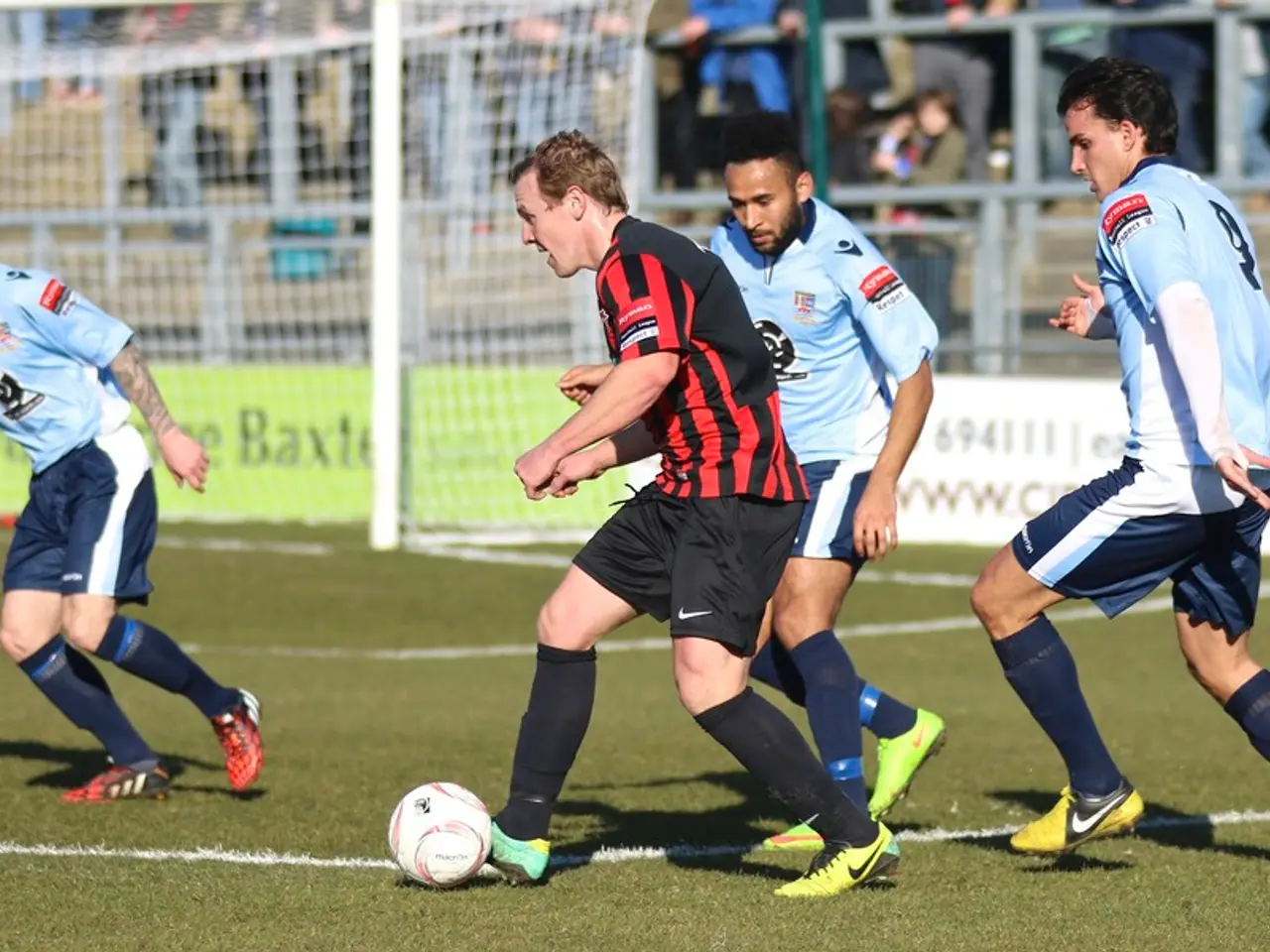Ex-Athletes Often Enjoy Satisfying Lives (Except Those Who Specialized in Basketball or American Football)
In the midst of an uproar over college sports profiting off student-athletes' labor, while failing to shield them from grave concussions, the NCAA is hoping to score a miraculous win in the form of some impressive statistics. According to a groundbreaking Gallup poll commissioned by Purdue University, former college athletes consistently outperform non-athletes in almost every aspect of life.
The survey's results highlight former student-athletes as more successful professionals, with higher levels of self-reported job satisfaction and daily engagement. It turns out that the grueling student-athlete agenda of competitive performance, teamwork, and juggling academic rigor, has a far-reaching impact on their success and general outlook.
Vin McCaffrey, founder, and CEO of Game Theory Group, a software company assisting student-athletes in transitioning to their post-sports lives, isn't surprised by this development. McCaffrey, a former Division I basketball player for Lehigh University, explains that the demands placed on student-athletes forge them into exceptional individuals excelling in adaptability, resilience, and communication. These qualities are undoubtedly attractive to corporate recruiters, particularly in high-stakes environments such as finance.
One striking finding of the survey concerns an area seldom associated with sports – personal well-being. Former student-athletes scored significantly higher on measures of purpose and engagement, social well-being, community pride, and even physical health than non-athletes. Surprisingly, in terms of financial well-being, both groups showed similar results, indicating that while athletic success benefits career advancement, it doesn't necessarily translate to financial prosperity.
An estimated 460,000 student-athletes representing 24 men's and women's sports compete across U.S. colleges and universities. The data suggests that this unique athlete experience cultivates a stronger sense of purpose, community connection, and general well-being than is typically found in the non-athlete population.
Interestingly, former football players and male basketball players appear to be the exception to this positive trend. Despite the presumed congruence between athletic success and overall well-being, a poorer physical well-being rating is reported by these elite athletes. Experts attribute this finding to the physically grueling nature of these sports and the damage they may cause in the long term.
While the Gallup survey offers encouraging insights, it's essential to acknowledge that the general population's level of overall well-being remains relatively low. Although student-athletes demonstrate marked improvements in these areas, they still face various struggles and may be more susceptible to mental health issues than their non-athlete contemporaries.
Despite the adversities faced by college athletes, the survey reveals that they are significantly more likely to graduate on time without transferring, reinforcing the idea that competitive athletics might instill a greater sense of discipline and focus.
The findings indicate that former student-athletes, including those who excelled at sports like football and basketball, are more likely to demonstrate exceptional qualities in adaptability, resilience, and communication, making them attractive candidates for corporate recruiters, even in high-stakes industries such as finance. However, despite the general physical toll of football and basketball, former football players and male basketball players are found to report lower levels of physical well-being compared to other student-athletes, perhaps due to the long-term effects of these physically grueling sports.





